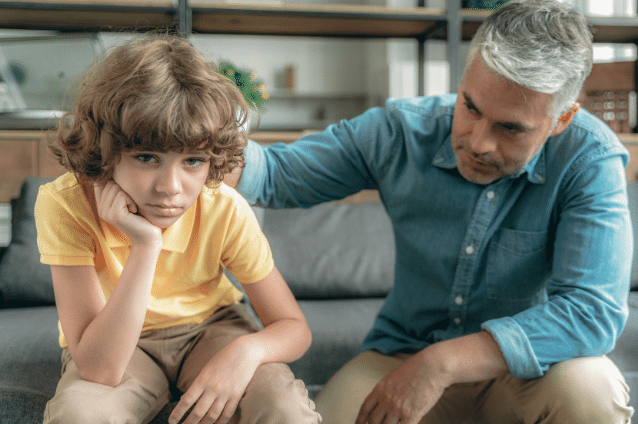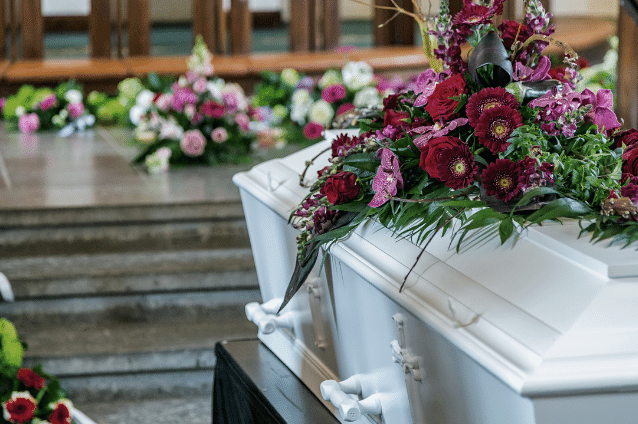Talk to children about death
Talking to children about death can feel both difficult and scary. Many adults want to protect children from difficult and frightening things like death. It can be difficult to know how much the child understands and what you can actually say.
In this article, we go through how children of different ages understand death and how to talk to children about death.
How much children at different ages understand
The understanding of death varies in different children. In general, however, it can be said that their way of perceiving death follows their different stages of development. In this article we talk about 4 different phases: children under five, children between 5-9 years, children between 9-12 years and teenagers.
There are different ways to talk to children about death depending on the age of the child.
Children under five years
Children under the age of five often do not understand what death really means or that everyone will die at some point. It is therefore important to be specific with small children. Explain why the person died and be open to answering questions.
By being sensitive to the child’s questions, you can more easily understand what the child is really wondering about and what needs to be explained more. Young children often process difficult events slowly, which means that the importance of talking calmly is great. It may also be necessary to explain the same thing on several different occasions.
It is also common in young children to react by crying more often and an increased need for closeness. They prefer to be close at all times and do not want to be separated from their parents or close relatives. Focusing on giving the child extra closeness and care is important.

Children between five and nine years
At this age, one begins to understand more what death means, but one can still believe that the dead will be able to return. When talking to children about death at this age, it is therefore important to always be clear. Do not use terms such as “fallen asleep” or “gone away” if someone has died, as the child may perceive that the situation is not definitive and that the deceased can return.
Children at this age often begin to realize that others nearby may die and the importance of protecting their families and loved ones grows. Focus on giving more time and closeness to the child, physical touch is extra important for children at this age.
Children between nine and twelve years
Children between the ages of 9 and 12 have usually understood that everyone will die one day. They have also realized that death is eternal and that the dead will not return. It is easier for children at this age to understand that it does not have to be someone’s fault that a person dies, life can only end.
Children at this age often tend to only manage their grief for short periods. They can play and be happy for a while, only to cry an hour later. Let the child mourn in their own way, there is no right or wrong in the mourning work. Ask questions if the child seems worried about something.
Teenagers
Children who are in their teens understand what has happened and understand that it will affect the future of the whole family. It is common for teenagers to feel the need to take on adult responsibilities and therefore choose to shut down their emotions. Often, teens can react by being sad or outspoken. It is common to become more introverted and have more guilt.
It is important to continue to show that you care about the teenager. Even if the teenager gives you nasty answers and withdraws, it is important to show that you are available if needed.
Tips when talking to children about death
- Be clear in communication
All children need to understand what it is they are experiencing and that death is difficult. It is important that the children are allowed to ask questions that lead to honest answers. Let the questions that the child has control the conversation when you talk to children about death.
- Share the grief with the child
When talking to children about death, it is of great value to share their grief and remember the deceased together. It is recommended to look at pictures and talk about the deceased, as well as the missing, together. Bringing a child to the cemetery is also a good idea. One can then remember and honor the deceased at the person ‘s tombstone .
- Read together
When talking to children about death, it may be a good idea to read a book together. Choose a book about death and start the conversation there. One recommendation is the children’s book Stig, a story that portrays both grief and loss from a child’s perspective. The book is about how an absent person can still be present and that the relationship does not end just because the person dies.














